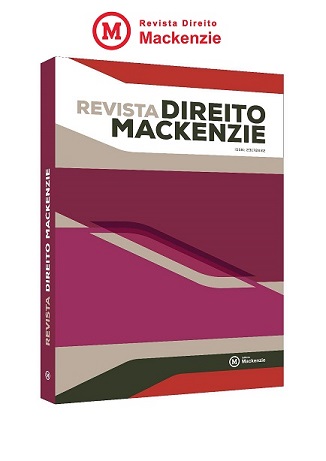SUPPRESSION OF OMISSION UNCONSTITUTIONAL FOR INTERPRETATION OF CONSTITUTIONAL MEANS: THE ADO 26 AND MI 4.733
DOI:
https://doi.org/10.5935/2317-2622/direitomackenzie.v15n114550Abstract
The present essay seeks to dialogue with the judicial decision of the Supreme
Federal Court that declared the National Congress’s unconstitutional omission
to penalize the crime of transphobia. The delimitation of the theme addresses
the method of interpretation and the racio decidendi contained in the grounds
of the precedent established by the top body of the Judiciary. The central problem
of this text is to ascertain which is the legal-social argument that allowed the
criminal classification of transphobic conducts and which is the reasoning used
by Minister Celso de Mello. The general objective is to debate how the legal interpretation
made it possible to bridge the normative vacuum and allow the realization
of fundamental rights through the application of specific interpretative techniques
of the constitutional jurisdiction. The methodology applied to the essay was
the hypothetical deductive, which seeks to reach the argument of legal legitimacy
that authorizes the application of the racism law to acts of transphobia.
Downloads
Published
Issue
Section
License
Copyright (c) 2021 Bernardo Silva de Seixas, Rennan Faria Krüger Thamay

This work is licensed under a Creative Commons Attribution 4.0 International License.
The copyright of the articles published in Mackenzie Law Review belongs to the authors, who grant Mackenzie Presbyterian University the rights of publication of the contents, and the assignment takes effect upon submission of the article, or work in similar form, to the electronic system of institutional publications. The journal reserves the right to make normative, orthographic, and grammatical alterations to the originals, with the aim of maintaining the cultured standard of the language, respecting, however, the style of the authors. The content reported and the opinions expressed by the authors of the articles are their exclusive responsibility.











